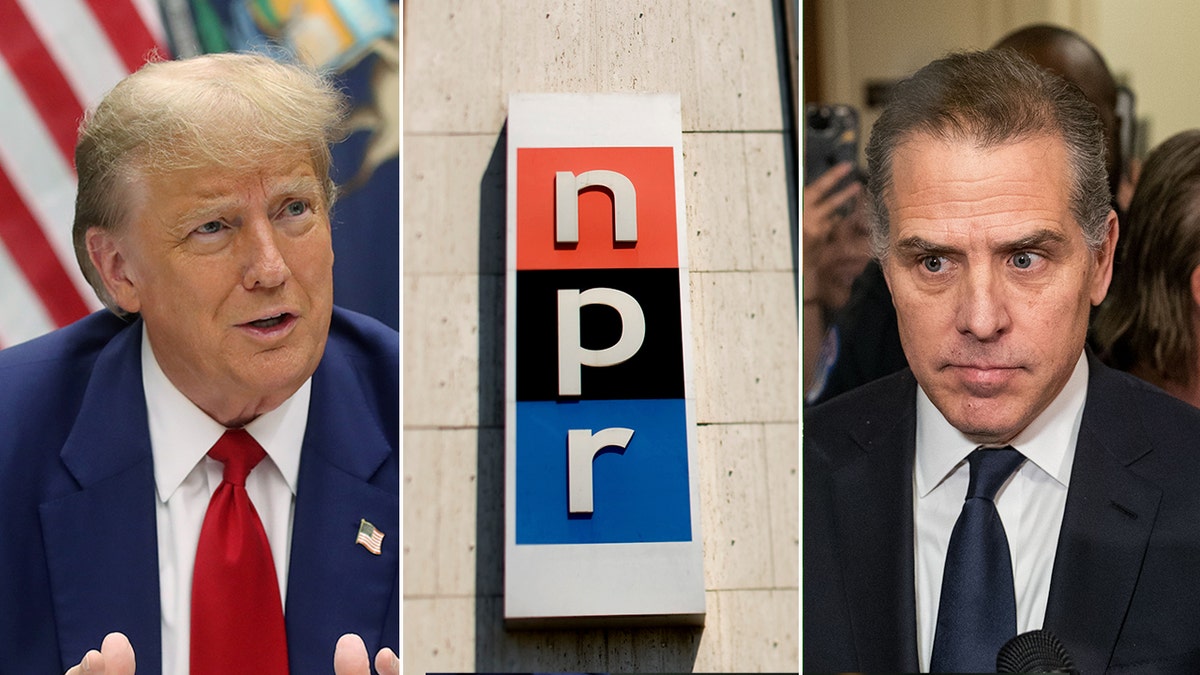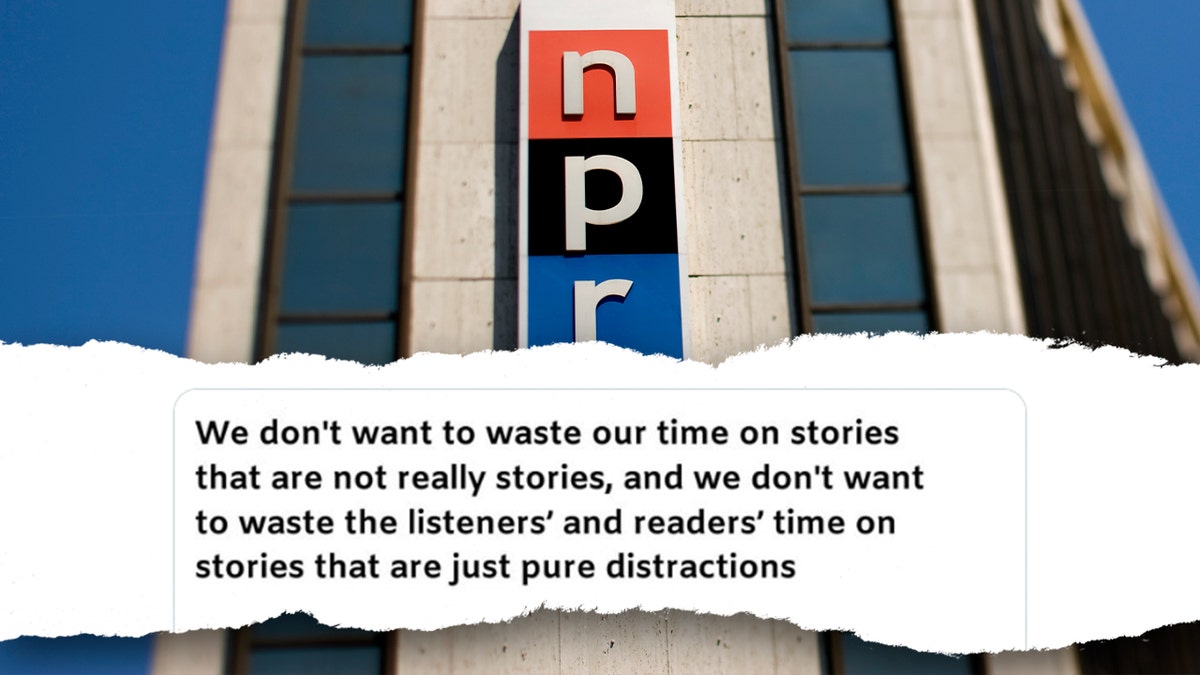Pompeo on Hunter Biden laptop cover-up: This was the real Russia hoax
Former Secretary of State Mike Pompeo reacts to claims that the Hunter Biden laptop story was Russian disinformation on "The Story."
NPR editor Uri Berliner issued a lengthy rebuke of NPR's media coverage of major news stories over the last few years, such as the Hunter Biden laptop and the COVID lab leak theory, and called out the outlet's "efforts to damage" Trump's presidency.
Berliner, a senior business editor at the outlet, wrote in an essay for the Free Press that NPR's coverage veered off the deep end when Trump was elected in 2016. He cited its coverage of Russiagate first and said NPR "hitched our wagon" to Rep. Adam Schiff, D-Calif., who peddled Trump-Russia collusion claims for years.
"Schiff, who was the top Democrat on the House Intelligence Committee, became NPR’s guiding hand, its ever-present muse. By my count, NPR hosts interviewed Schiff 25 times about Trump and Russia. During many of those conversations, Schiff alluded to purported evidence of collusion. The Schiff talking points became the drumbeat of NPR news reports," Berliner wrote.
After the Robert Mueller report found "no credible evidence of collusion," he wrote, the Trump-Russia story disappeared from NPR's coverage. Berliner said the outlet pretended like it never happened.

An NPR editor is speaking out against his own outlet about their past media coverage of Trump and Russia, the Hunter Biden laptop story and more. (Left: Spencer Platt/Getty Images | Center: Brooks Kraft LLC/Corbis via Getty Images | Right: Kent Nishimura/Getty Images)
Berliner also pointed to NPR's decision to turn a "blind eye" to the Hunter Biden laptop story in 2020.
"The laptop was newsworthy. But the timeless journalistic instinct of following a hot story lead was being squelched. During a meeting with colleagues, I listened as one of NPR’s best and most fair-minded journalists said it was good we weren’t following the laptop story because it could help Trump," he wrote.
When the New York Post first reported on Hunter Biden's laptop in 2020, NPR infamously issued a statement as to why it wasn't covering the story. At the time, a popular narrative in liberal media was that the laptop was a possible Russian disinformation operation, but its contents were later verified by multiple outlets that previously cast aspersions on it.
"We don’t want to waste our time on stories that are not really stories, and we don’t want to waste the listeners’ and readers’ time on stories that are just pure distractions," NPR's statement said.

NPR issued a statement in 2020 that it wouldn't waste time on the Hunter Biden laptop story, which they said was not real. (Screenshot/NPRPublicEditor/Twitter | Brooks Kraft LLC/Corbis via Getty Images)
NPR UNDER FIRE FOR CLAIMING HUNTER BIDEN LAPTOP STORY WAS 'DISCREDITED' BY US INTELLIGENCE, MEDIA
"But it wasn’t a pure distraction, or a product of Russian disinformation, as dozens of former and current intelligence officials suggested. The laptop did belong to Hunter Biden. Its contents revealed his connection to the corrupt world of multimillion-dollar influence peddling and its possible implications for his father," Berliner continued.
Berliner also pointed to NPR's coverage of the COVID-19 lab leak theory, which he said the outlet was supposed to ignore. Similar to the Biden laptop story, the notion that the virus may have leaked from a Wuhan virology lab in China was dismissed as right-wing claptrap before ultimately being accepted as at least a plausible theory in mainstream media.
"Over the course of the pandemic, a number of investigative journalists made compelling, if not conclusive, cases for the lab leak. But at NPR, we weren’t about to swivel or even tiptoe away from the insistence with which we backed the natural origin story," he said.

The NPR building in Washington, D.C. (iStock)
CLICK HERE TO GET THE FOX NEWS APP
Berliner said one of his colleagues on the science team was asked why they were so dismissive of the theory and that his response was "odd."
"The colleague compared it to the Bush administration’s unfounded argument that Iraq possessed weapons of mass destruction, apparently meaning we won’t get fooled again. But these two events were not even remotely related. Again, politics were blotting out the curiosity and independence that ought to have been driving our work," he wrote.
Reached for comment, an NPR spokesperson directed Fox News Digital to a memo to staff by editor-in-chief Edith Chapin, where she said she and her team "strongly disagree" with Berliner's assessment of the quality of NPR's journalism and integrity.
"We’re proud to stand behind the exceptional work that our desks and shows do to cover a wide range of challenging stories. We believe that inclusion — among our staff, with our sourcing, and in our overall coverage — is critical to telling the nuanced stories of this country and our world," she wrote.
"Journalism is a collaborative process. Rigorous debate and self-examination are necessary parts of our pursuit of the facts, and exploring the diverse perspectives that drive world events is necessary to our public service mission. That’s why we have built in processes to verify accuracy and why we adhere to the highest editorial standards. It’s why we have a standards and practices editor as well as a public editor to stand-in for the audience. It’s why we track sources — so we can expand the diversity of perspectives in our reporting. We have these internal debates, enforce strong editorial standards, and engage in processes that measure our work precisely because we recognize that nobody has the 'view from nowhere.'"
"With all this said, none of our work is above scrutiny or critique. We must have vigorous discussions in the newsroom about how we serve the public as a whole, fostering a culture of conversation that breaks down the silos that we sometimes end up retreating to. Ideally, we engage in this debate respectfully, with the goal of lifting up and strengthening each other’s work. As our emerging strategic focus brings new insights into what audiences we do and do not currently serve, we have an obligation to more rigorously consider and measure how our coverage fulfills our public service to all audiences."
She concluded she was proud of the organization's work and lauded NPR as "one of the most trusted news organizations in the country."
"Let’s not forget that the reason we remain one of the most trusted news organizations in the country is that we respect people’s ability to form their own judgments," she added.
Note: This article was updated with a response from NPR.









































